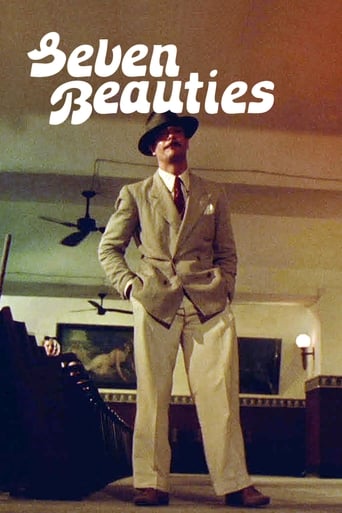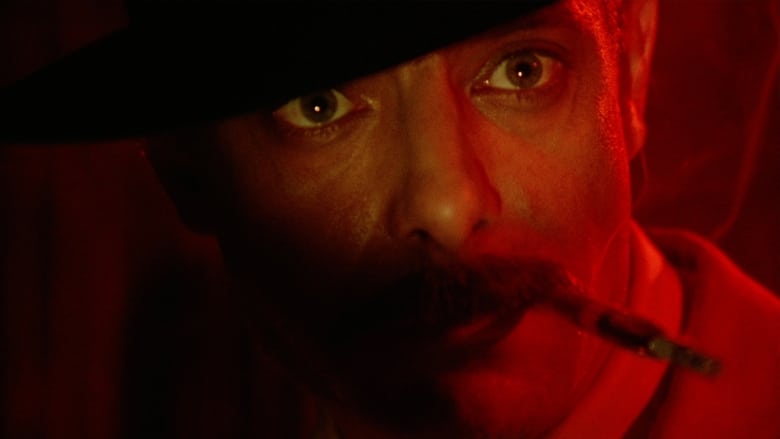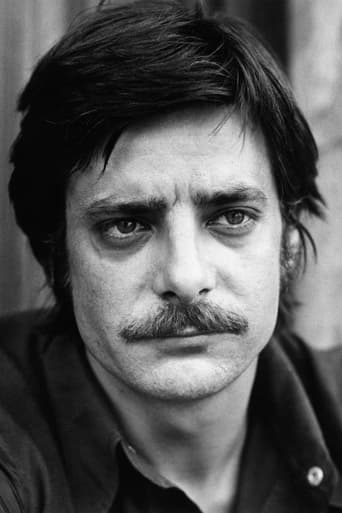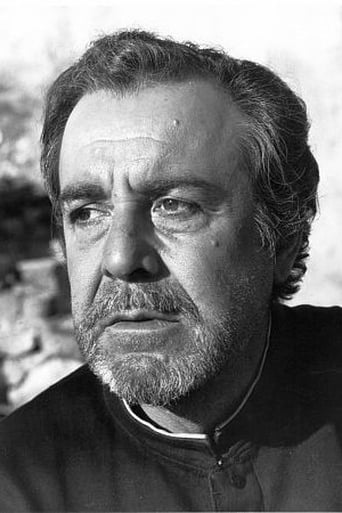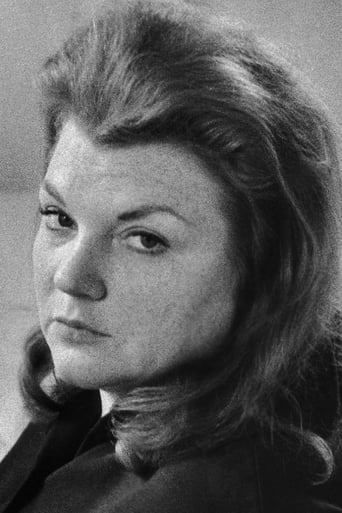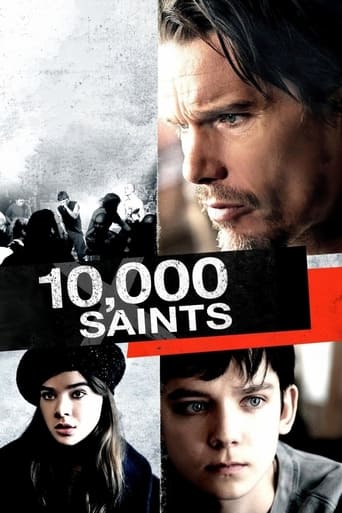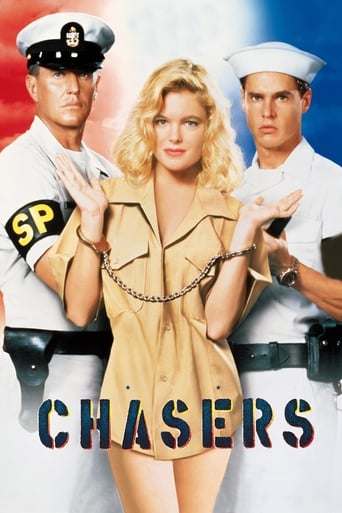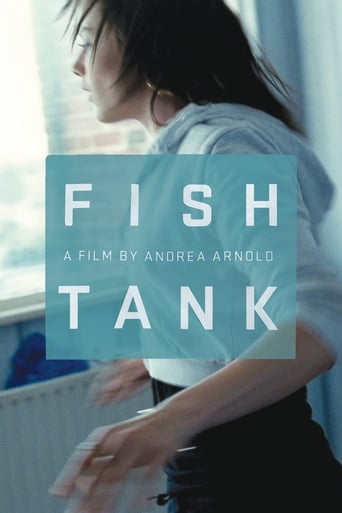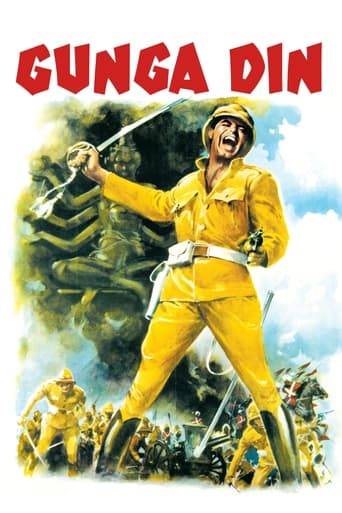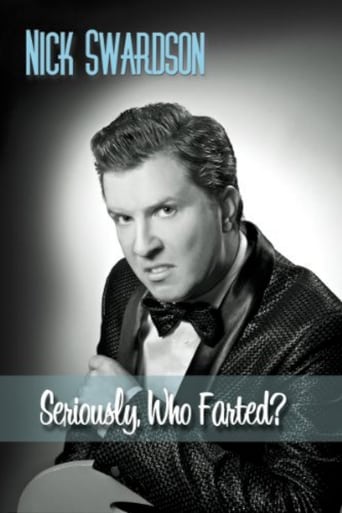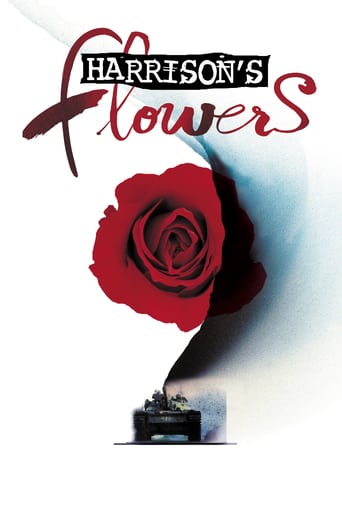Seven Beauties (1976)
Pasqualino Frafuso, known in Naples as "Pasqualino Seven Beauties" is a petty thief who lives off of the profits of his seven sisters while claiming to protect their honor at any cost, Pasqualino is arrested for murder and later sent to fight in the army after committing sexual assault. The Germans capture him and he gets sent to a concentration camp where he plots to make his escape by seducing a German officer.
Watch Trailer
Free Trial Channels
Cast


Similar titles
Reviews
Expected more
disgusting, overrated, pointless
I enjoyed watching this film and would recommend other to give it a try , (as I am) but this movie, although enjoyable to watch due to the better than average acting fails to add anything new to its storyline that is all too familiar to these types of movies.
Through painfully honest and emotional moments, the movie becomes irresistibly relatable
Lina Wertmüller's film Seven Beauties or as it is known in the original Italian , Pasqualino Settebelleze, made the history as the very first full-length feature film, for which a female director was nominated by the Academy for Best Directing. The movie is 35 years old, but is so beautifully and creatively made, and mixes horrifying, ugly, funny and touching so perfectly that it has not become outdated and it won't be even after 100 or more years. Wertmüller made the film that both Tarantino with Inglorious Basterds and Roberto Benigni with Life is Beautiful could only dream about. I've seen thousands of movies but I can count on one hand these that made me cry, laugh, terrified and amused at the same time. Seven Beauties is one of them. In Seven Beauties, grim and shocking scenes of war and survival in a concentration camp are intermixed with memories of the protagonist, Pasqualino, nicknamed "Seven Beauties" of the pre-war Naples, about his life as a petty thief, pimp, and a wannabe Mafioso, and a guardian of his seven ugly as hell sisters' family honor. That's where the irony of the film's title comes from. I must say that for a film with such an abundance of beautiful women in the title, Lina Wertmüller surpassed Federico Fellini who was just as mesmerized with the ugliness as he was with beauty, and often inhabited his films with the grotesque figures. I guess Wertmuller learned a lot from Fellini whom she met through Marcello Mastroianni and worked as an assistant on the set of 8 1/2 in 1962. I also think that only a woman can highlight inadequacies and unattractiveness of the other women so eloquently in Wertmüller's film. The film's protagonist, Pasqualino - weak, silly, but full of self-importance as the only male in the big family responsible for the sisters and their mother, and is ready to stand up for their dignity and honor (as he understood it) at any cost. That includes the killing rather by accident of a man who made a prostitute of Pasqualino's sister... and disposal of the corpse ( here the movie turns into a horror, mixed with the moments so funny that I could not look at the screen and turn off it at the same time. After the fast solving of messy crime and trial, Pasqualino was found mentally incompetent and sent to a psychiatric hospital for 12 years. But Italy needs soldiers, and Pasqualino escapes from a mental hospital, gets to the front, deserts, and ends up a prisoner of war in the concentration camp in Germany which is run by a formidable petrifying never parting with her whip larger than life woman-commandant. Pasqualino had two true talents - success with the ladies and an amazing ability to survive. Would they help him to survive the nightmares of concentration camp and return home to sunny Naples to his mother and seven beauties? The movie is in my opinion a masterwork. Scenes from past and present are connected smoothly and flawlessly. Wertmüller effectively uses close-ups. The script, which she also wrote - is a beauty itself. It is original, witty, gloomy, but not pessimistic, it is a political satire and it pokes on the traditional Italian machismo, it does not shy away from the tragedy of war and the price of survival. And finally, this is certainly Lina Wertmüller's movie, but she shares the success with her Muse or Musus:), Giancarlo Giannini . Giannini starred in four Lina Wertmüller's films, but Pasqualino Settebelleze, a small man with a great opinion of himself and seven ugly sisters - is his masterpiece. This is a must see.
Seven Beauties goes for about the first hour seeming to be, for the most part, a wild lot of absurd and/or fully rounded moments of wit from the physical (moving a large dead body around a room, a broom and pail of things thrown after getting beat to the grown, and most notably stealing food while rambling on in Italian to a German in stunned silence), to things based just on the wild mood of Italian characterizations. After all, how can it not be when a man has about seven sisters, give or take a couple, and a house full of kids and estrogen? Surrounding this absurdity, and the sort of smooth-operating would-be ladies man but stern-family-man Pasqualino (Giancarlo Giannini), is real danger in the country, and after becoming a soldier following a series of very bad circumstances (murder, a stint in a mental hospital), he also gets thrown into a prison-cum-concentration camp, where he thinks that somehow he can pull out something of emotion from the bloated brick-wall of a b***h-witch German Commandant (Shirley Stoler). This, however, brings on a downfall that acts as something of a purely existential crux: he'll have to live with it for the rest of his life- or some form of life he's chosen over the firing line.Seven Beauties is loaded with creativity and an original perspective right from the beginning. I loved the opening montage, where Wertmuller puts together images of Nazis and world war 2 bombings put to 70s progressive rock music and Giannini in voice-over doing some strange quasi-singing. Then the story, unfolding in appropriate non-linear form, has Pasqualino trying to avoid a firing line he and his socialist friend escape from (he doesn't want to escape from it, but Pasqualino does, leading to the ultimate irony in the prison camp). Then something tricky: treading the line between making scenes really emotionally compelling in terms of the dramatic conflict- which in true Italian fashion ala Pasqualino's striptease sister, whom he fervently disapproves of- while also adding hysterical comedy on the same level.There's sincerity all the time, but also something of a wink from Pasqualino, at least at first, if only subliminally through his oddly traditional character. Then, as the prison camp scenes go forward, things become (very) dark with the set design being extremely stark and decayed with the buildings and blank look to the walls, and the Commandant, who as played by the scarily one-tone Stoller, a Nazi version of Nurse Ratched, minus the veneer of "we're here to help you" and replaced with the cruelest form of human connection- pure indifference and contempt that gives fascism its bad name.It's fascism, by the way, that is laced in the cracks in the story, as we see in a scene between the Socialist and Pasqualino, where he can't get his head around the idea that fascism and Il Duce aren't good providers. Behind the real human choices and lack of compassion in this world of Wertmuller's, there's the social framework that puts all these characters into this wretched existence. Giannini, all the while, is absolutely perfect in the role. First there's just the look on his face, his eyes, where early on he's the 'man' of the family, in charge and taking names, though mostly in threats. When there's panic to be had, like in an accidental murder, then we start to see cracks in his veneer of more slick attitude. These become more pronounced in the mental hospital, including a great scene of reaction shots as he tries to have his way with a woman tied down to a bed. By the time prison comes, he's been broken down, and his pleading with the Commandant- who shows next to no emotion, whatsoever- seems all the more genuine, not so much as a con, and it's significant by making comedy in a German prison environment so uncomfortable and bleak. The last shot is key, and one where Giannini's performance comes full fold; this is one where he goes through many emotions, through a very expressive face, ending on a blank. Wertmuller as director is fearless in her attempts to intermingle just little slices of comedy, like Pasqualino's "seven beauties" explanation. Or as he hums and whistles quietly early on at the Commandant, quietly getting her attention. Even over the top bits with the prostitute sister, or with the little flashbacks to his childhood, it's an honest comedy, that can only come out of a confident director in tone and manner with the actors. And when it comes to style, she has one of the key cinematographers of the mid 20th century on her side (Tonino Delli-Colli), but it's sometimes more subtle than a Fellini, with a documentary approach to many scenes, and an editing style that's a little leaning to the conventional side when not intermingling various images and montages, or cutting to trees to transition. But there are many scenes for movie buffs to remember just in visual terms; the prison is presented in long shots displaying the many souls lost in the deadened atmosphere of total dominance, and specifically the scenes with Pasqualino and the Commandant in her office are lit in a stark green, and later blue, add not so much the characters' psychological mood but just a sensibility of dread and the coldness of it all.In all, Seven Beauties is a disturbing work of of minor genius, and it's unfortunate that Wertmuller is over-looked nowadays as she's one of those rare filmmakers who can tackle the sad truths of people that are faced when there's real consequences to not really being apart of anything except for oneself and so-called "family pride". At the same time Wertmuller gets the viewer to laugh at it during the process, be it through choices in music or simply in Giannini, who's got more range than many a Hollywood actor today. A+
The old adage: "He who fights and runs away Lives to fight another day" seems to pretty well summarise Pascalino's attitude to life. He is very much on the run through much of this film. After all he did murder a man who deflowered his sister. But then he believes murder is permissible under some circumstances e.g. when the honour of the family is at stake. As for war, why kill people you do not even know? This and many other questions he keeps asking himself.I happened upon this gem of a film quite unexpectedly. The title meant nothing to me. For the first part of the film I was disarmed by a light comedy, so very Italian, about a "casanova" who had all the ladies swooning. I was enjoying his antics (perhaps learning a thing or two) when suddenly, captured and thrust into the confines of a Nazi prison camp he became a tragic figure indeed as he tried to seduce (using every known technique)the very brutal Commandant, a fearsome woman to be sure.The horrors of war and the terrible decisions which have to be made to save one's own skin becomes the major thrust of this film.It's a thoroughly entertaining anti-war film with some home-spun philosophy about war and life in general which deserves deep thought by those contemplating any type of warfare. The message is just as pertinent today as it was when this film was made nearly 30 years ago.
I would challenge any serious film lover to view this movie and not have a very strong opinion of it. My own opinion is that it's one of the best films ever made, period. The story is harrowing, the score is so haunting you'll never forget it, and you'll think about scenes from it years later. Once you viewed it, most other domestic stuff won't even make it into the ballpark with it, much less compare with it. It's a masterpiece, plain and simple. This is real film making.

